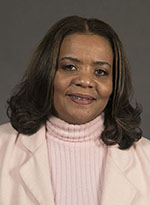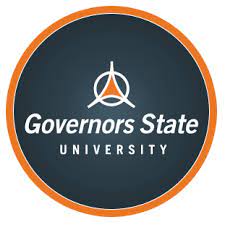Instructor: Tonya Roberson
 |
Biography: Dr. Roberson is the Director of Community Engagement, Program Development and Academic Success / Adjunct Faculty in the College of Health and Human Services. She has over fifteen years of biobehavioral and social sciences research experience with extensive recruitment and selection capability experience. Dr. Roberson has a particular expertise in methods to address health inequalities, health promotion theories, and models to assess the holistic health of African Americans in the urban centers. She has vast knowledge in biomedical research, culturally tailoring initiatives, community engagement and practice, survey design, extensive research recruitment, independent consulting and evaluation. She is well connected and trusted in the Chicagoland communities and serves in many leadership roles increasing awareness about various research initiatives with successful implementation. She conducts community needs and health assessments for community members/patients with chronic diseases in underserved communities to link them with culturally relevant resources/programs that will help combat their issues. Dr. Roberson focuses on health education and disease prevention strategies to promote improving the quality-of-care and quality-of-life of persons coping with a life-threatening illness. She is committed to giving her time and talents through her community organizing efforts and outreach work to educate audiences about being an advocate of their "own" health and the importance of making healthier lifestyle choices .
|
Classes by this instructor
Community Health Worker (CHW) Certificate Program

Community Health Worker (CHW) Certificate Program
Course Fee: $3,000
Dates: January 19, 2026 - December 10, 2026
Time: TBD
Course Description:
The Community Health Care Worker (CHW) Certificate Program is a year-long, 144-hour training program designed to prepare individuals to serve as effective advocates and health educators within their communities- particularly among minority and disabled populations. The program covers a wide range of topics, including disability rights, health equity, chronic conditions, mental health, nutrition, and cultural sensitivity. Participants gain practical skills in communication, first aid, health literacy, and patient navigation. The curriculum also emphasizes fieldwork, leadership development, and community engagement. Through hands-on projects and a final capstone, students learn to design and implement health initiatives that are inclusive, accessible, and community-informed.
Attend an information session to learn more! You can register for one of the following dates:
- October 13 via Zoom at 6:30 p.m.
- November 10 via Zoom at 3 p.m.
- December 11 via Zoom at 6:30 p.m.
Community Health Worker (CHW) Registered Apprenticeship Workshop

Community Health Worker (CHW) Registered Apprenticeship Workshop
Course Fee: $3,300
Dates: March 23, 2026 - ?
Time: TBD
Course Description:
The Community Health Care Worker (CHW) Certificate Program is a year-long, 144-hour training program designed to prepare individuals to serve as effective advocates and health educators within their communities- particularly among minority and disabled populations. The program covers a wide range of topics, including disability rights, health equity, chronic conditions, mental health, nutrition, and cultural sensitivity. Participants gain practical skills in communication, first aid, health literacy, and patient navigation. The curriculum also emphasizes fieldwork, leadership development, and community engagement. Through hands-on projects and a final capstone, students learn to design and implement health initiatives that are inclusive, accessible, and community-informed.

 Cart (0)
Cart (0)